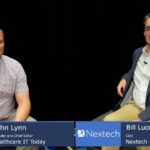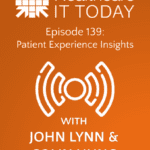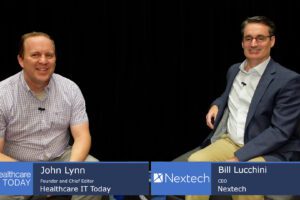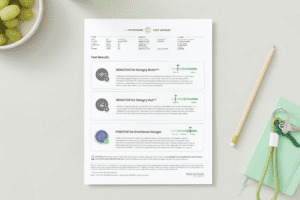Healthcare has always relied on data. What’s changed is the explosion of data in healthcare and the availability of this data to clinicians as well as a whole host of healthcare professionals. Bringing context and meaning to this vast amount of data including unstructured health data is going to be key for every healthcare organization. We sat down with Dr. Paulo Pinho, Chief Medical & Strategy Officer at Discern Health, and Dr. Tim O’Connell, Co-founder and CEO at emtelligent, to learn more about what they’re doing to contextualize data and improve processes for providers, payers, and researchers across even the most complex use cases.
To illustrate this change, Dr. Pinho expects medical schools to start teaching their students how to use generative AI tools as part of their medical learning. He talks of “dually trained” clinicians who understand both the compassionate practice of medicine and the technologies that support their work.
Dr. O’Connell described emtelligent’s two platforms. A “data extraction engine” reads unstructured data while understanding ambiguity, uncertainty, and context in order to perform medical tasks such as coding. Their large language model (LLM) is medically trained and can query the patient’s data to answer complex questions such as how many blood vessels are affected by a disease.
Dr. Pinho explains the importance of summarizing unstructured information. Codified elements don’t “tell a story.” Clinicians need to know nuances such as when medicine was first prescribed, and this is very tedious to extract without a natural language processing trained in medical terms, the “vernacular of health care.”
Both doctors emphasize the role of AI as “human augmentation,” making the difficult task of symptom detection in order to free up the physician for communication and “holding the patient’s hand.” Dr. O’Connell said, “I don’t want a machine making a decision on my behalf.” Their platforms not only extract useful data, but show what ontologies were used and where in the chart the data came from, so that doctors can evaluate platform results.
Dr. O’Connell also listed what their platforms can offer to various markets. Clinicians can use the services to aid diagnosis and do the risk profiling that is so important in value-based care. Payers can extract data for measures such as severity of disease and quality measures. Pharma and life sciences can mine data for inclusion criteria and real-world evidence that their drug is providing benefits. Governments can measure medical service utilization. Other digital health companies can build niche products on their language recognition technology.
Watch the video for the doctors’ discussion of their platforms, the history of AI in medicine, why the promise of EHRs can finally be realized, and more.
Learn more about emtelligent: https://emtelligent.com/
Learn more about Discern Health: https://discernhealth.ai/
Listen and subscribe to the Healthcare IT Today Interviews Podcast to hear all the latest insights from experts in healthcare IT.
And for an exclusive look at our top stories, subscribe to our newsletter and YouTube.
Tell us what you think. Contact us here or on Twitter at @hcitoday. And if you’re interested in advertising with us, check out our various advertising packages and request our Media Kit.
emtelligent is a proud sponsor of Healthcare Scene.














Add Comment